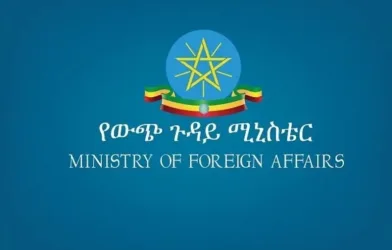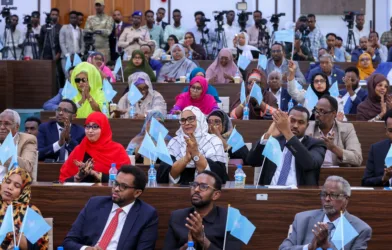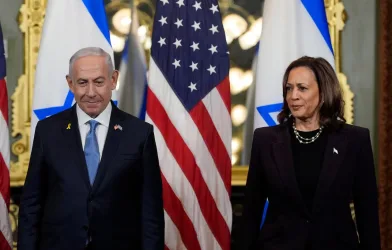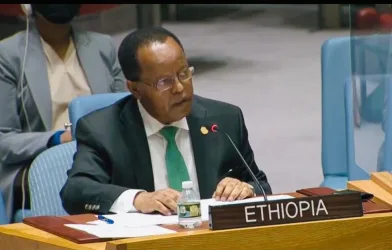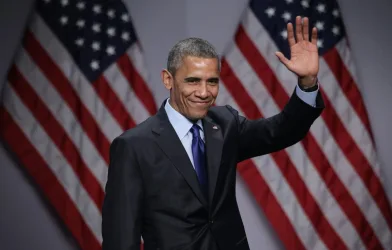![]()
By JEFFREY GETTLEMAN
The African Union’s peacekeepers are already battling the Shabab in Mogadishu, the capital, and Kenyan forces have recently begun fighting the Shabab in southern Somalia near Kismaayo. But the prospect of the Ethiopian Army returning to the country under the African Union’s banner is highly charged because of Ethiopia’s bitter history in Somalia.
An official of the Somali government said Thursday that Ethiopian troops had already begun to move across the border, discomfiting Somalia’s president, Sheik Sharif Sheik Ahmed.
Ethiopia has one of the largest armies in Africa and has often clashed with Somalia. Ethiopian troops invaded Somalia in 2006 to oust an Islamist movement that then controlled much of the country. Sheik Sharif was one of the movement’s leaders, and after hiding from the Ethiopians, he fled Somalia.
The Ethiopian troops remained for about two years, and their occupation was hugely unpopular; thousands of civilians were killed when the troops indiscriminately shelled urban areas. The Shabab capitalized on the intense anti-Ethiopian feelings, and their ranks swelled.
Western and African Union officials say the Ethiopians are now eager to deal the Shabab a crushing blow and to install their own proxies in Somalia, which could lead to even more power struggles and factional bloodshed.
The Somali official, who spoke on the condition of anonymity because of the delicacy of the topic, said that Sheik Sharif was not happy with the prospect that Ethiopian troops would return, “but he has no choice” because his government ruled only a small area of the capital and was powerless to block the move. The Ethiopians are expected to work closely with Somali clan militias in the Baidoa area and are not likely to enter Mogadishu again.
A senior African Union official, who also spoke on the condition of anonymity, stressed that any Ethiopian involvement would be carefully coordinated with the existing 9,000-strong African Union peacekeeping force, which has sustained heavy casualties recently.
“The idea is to relieve pressure on Amisom,” the official said, referring to the peacekeeping force by its acronym. “We’re looking at how neighboring countries can assist, and we are quite aware of the sensitive aspects.”
Somalia, which has not had an effective national government since 1991, is rapidly becoming an arena where Kenya, Ethiopia and even Uganda, which has contributed thousands of troops to the peacekeeping force, vie for influence and use their involvement in the war-ravaged country for leverage with Western aid donors.
Many analysts accuse the African Union and Kenya of being tone-deaf to the complicated politics in Somalia, where the fledgling transitional government is struggling to defeat Islamist militants, rally the populace to its side and extend its sway.
For instance, this week Kenya proudly announced a new cooperation pact with Israel, under which Israeli experts will help beef up Kenya’s counterterrorism forces, who already get millions of dollars in assistance from the United States and Britain.
Trumpeting the cooperation pact seemed to play straight into the hands of the Shabab, who present themselves as the true defenders of Islam in Somalia. The group immediately circulated recruiting agents from mosque to mosque, telling potential followers that the Kenyans were bent on a religious crusade in Somalia and had teamed up with Israel.
Kenya sent troops into southern Somalia in October, initially saying they were chasing kidnappers; it later said the incursion was months in the making and was intended to clear militants from a buffer zone along the Kenya-Somalia border.
On Thursday, Salim Lone, an adviser to the Kenyan prime minister, defended the pact with Israel.
“This new international alliance will substantially strengthen Kenya’s ability to protect itself from more terror attacks,” Mr. Lone said. “But to succeed, it must be accompanied by a related campaign to address the causes which breed extremism among Muslims at the coast and the northeast,” the areas of Kenya nearest to Somalia with the highest concentrations of Muslims.
African Union officials said Thursday that the Kenyan forces would soon be absorbed into the official peacekeeping operation, and that the African Union would ask the United Nations to authorize as many as 20,000 African peacekeepers for Somalia.
Source: New York Times
African Union Considers Sending Ethiopian Troops to Somalia
Published: November 18, 2011


